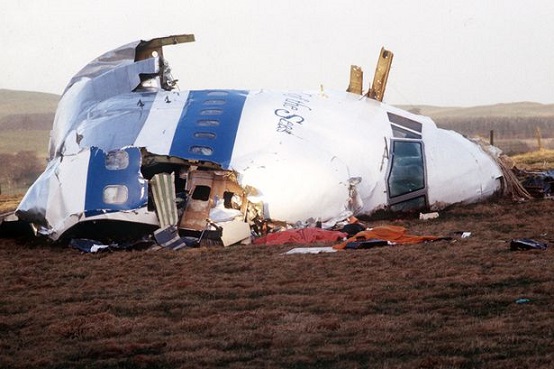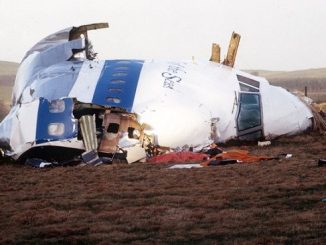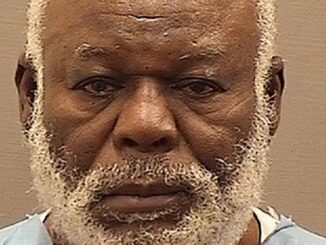
A review of Abdelbaset al-Megrahi’s conviction for the Lockerbie bombing is to be carried out by the Scottish Criminal Cases Review Commission.
The commission said it would examine the case to decide whether it would be appropriate to refer the matter for a fresh appeal.
Megrahi was jailed for 27 years in 2001 for the 1988 bombing of Pan Am flight 103 which killed 270 people.
He died in 2012 after being released on compassionate grounds in 2009.
Megrahi lost an appeal against his conviction in 2002, with the SCCRC recommending in 2007 that he should be granted a second appeal.
He dropped the second attempt to overturn his conviction in 2009, ahead of his return to Libya. He continued to protest his innocence until his death.

SCCRC chief executive Gerard Sinclair said the commission believed Megrahi abandoned his appeal as he believed that would allow him to return to Libya.
“In any application where an applicant has previously chosen to abandon an appeal against conviction the commission will, at the first stage of its process, look carefully at the reasons why the appeal was abandoned and consider whether it is in the interests of justice to allow a further review of the conviction,” he said.
“The commission has now investigated this particular matter and interviewed the key personnel who were involved in the process at the time the previous appeal was abandoned in 2009.
“The commission has also sought access to the relevant materials and has recovered the vast majority of these, including the defence papers which were not provided during its previous review.
“Having considered all the available evidence the commission believes that Mr Megrahi, in abandoning his appeal, did so as he held a genuine and reasonable belief that such a course of action would result in him being able to return home to Libya, at a time when he was suffering from terminal cancer.
“On that basis, the commission has decided that it is in the interests of justice to accept the current application for a full review of his conviction.”
The Pan Am flight from London to New York exploded 31,000 feet over Lockerbie, 38 minutes after take-off from London on 21 December 1988.
The 259 people on board the Boeing 747 were killed, along with 11 people on the ground.
Megrahi was found guilty of 270 counts of murder in 2001, after a historic trial under Scots law at a special court in the Netherlands.
He is the only person to have been found guilty of Britain’s worst act of terrorism.
His family made an application to the SCCRC to have his conviction overturned last July.
In a statement on this behalf, their solicitor Aamer Anwar said they had endured a “long journey in the pursuit for truth and justice”.
He added: “We welcome the news that today that the SCCRC having considered all the available evidence have confirmed that they believe that when Mr Megrahi abandoned his appeal, he did so as he believed he held a genuine and reasonable belief that such a course of action would result in him being able to return home to Libya, at a time when he was suffering from terminal cancer.
“The reputation of the Scottish law has suffered both at home and internationally because of widespread doubts about the conviction of Mr Megrahi.
“It is in the interests of justice and restoring confidence in our criminal justice system that these doubts can be addressed, however the only place to determine whether a miscarriage of justice did occur is in the appeal court, where the evidence can be subjected to rigorous scrutiny.”
He said the family’s application to the SCCRC was supported by Jim Swire, who lost his 23-year-old daughter Flora in the bombing; the Rev John F Mosey, whose 19-year-old daughter Helga died; and “many other British relatives of passengers who died on board Pan Am Flight 103”.
Analysis by BBC Scotland home affairs correspondent Reevel Alderson
It is quite unusual that the relatives of a deceased person can bring an appeal, but the decision has been taken that if a miscarriage of justice has occurred then Megrahi’s family are parties to getting the conviction overturned.
They have been trying to get his appeal reopened since he died in 2012.
But because he abandoned his original appeal shortly before he was freed from prison on compassionate grounds there has been some difficulty around it.
The relatives say he only dropped the appeal because he thought he had to do so to be allowed to leave prison.
Now the Scottish Criminal Cases Review Commission has accepted that he had a genuine and reasonable belief that was the case.
There are six grounds of appeal.
The expectation is that it will probably be a year or so before we know whether it will go to the appeal court.
Source: bbc.co.uk





Be the first to comment